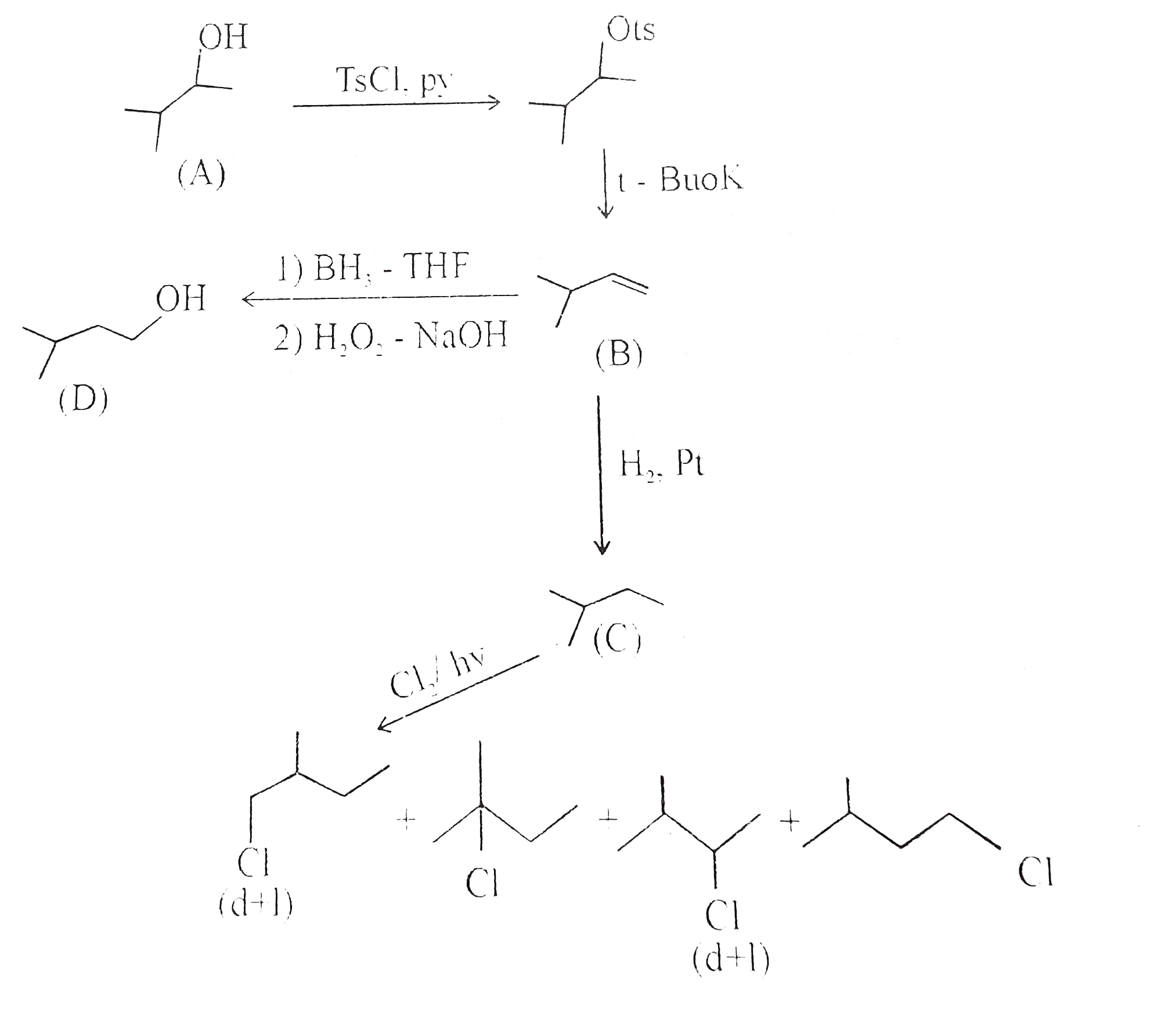compound (A) forms a ketone. It undergoes in following reaction scheme
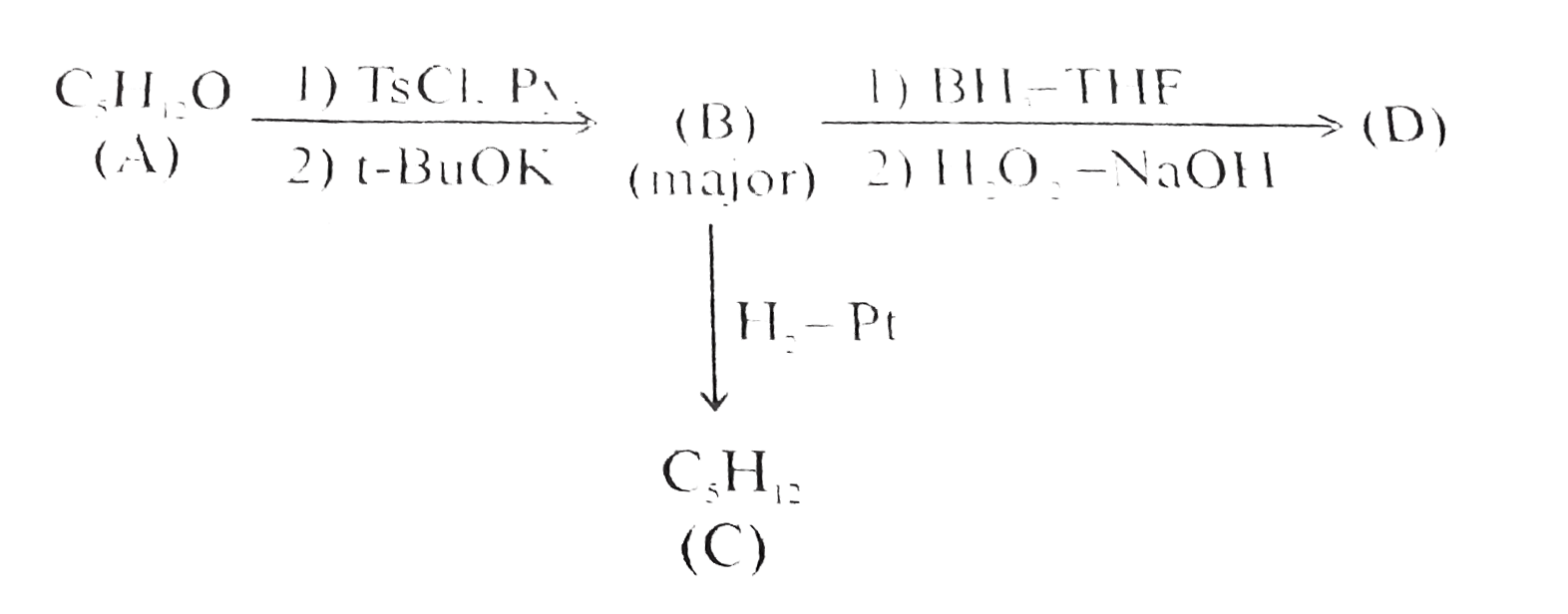
Compound (C ) on Photochlorination gives six monochloroderivaties.
Identify the correct statement?
Compound (B) can show geometrical isomerism
Compound (D) is a secondary alcohol
Compound (A) and compound (D) are stereoisomers of each other
Compound (B) on reductive ozonolysis gives a mixture of two aldehydes
The correct Answer is:D
Topper's Solved these Questions
- TEST PAPERSBOOK - ALLENCHAPTER - TEST PAPERSEXERCISE - CHEMISTRY
25 Videos
- TEST PAPERSBOOK - ALLENCHAPTER - TEST PAPERSEXERCISE - MATHEMATICS
2 Videos
- TEST PAPERSBOOK - ALLENCHAPTER - TEST PAPERSEXERCISE - part-2 Chemisty
18 Videos
- TEST PAPER 4BOOK - ALLENCHAPTER - TEST PAPER 4EXERCISE - CHEMISTRY
45 Videos
- THERMODYNAMICS BOOK - ALLENCHAPTER - THERMODYNAMICS EXERCISE - EXERCISE -4
18 Videos
Similar Questions
Compound (A) has molecular formula C5H12O. It liberates H2 gas on reaction with Na-Metl. It also rotates plane of P.P.L (Plane polarised light). On oxidation with P.C.C (Pyridinum chloro chromate), compound (A) forms a ketone. It undergoes in following reaction scheme
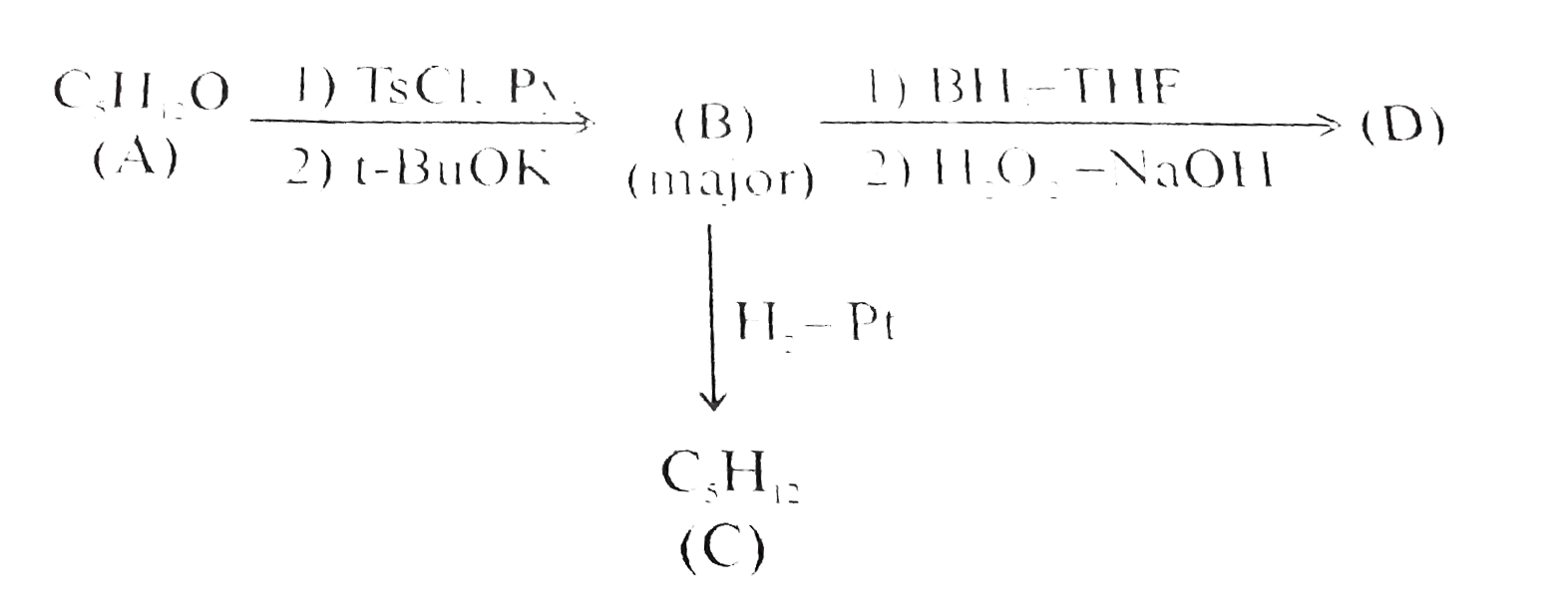
Compound (C ) on Photochlorination gives six monochloroderivaties.
Structure of compound (B) is?
View SolutionThe compound 'X' undergoing the following reaction is
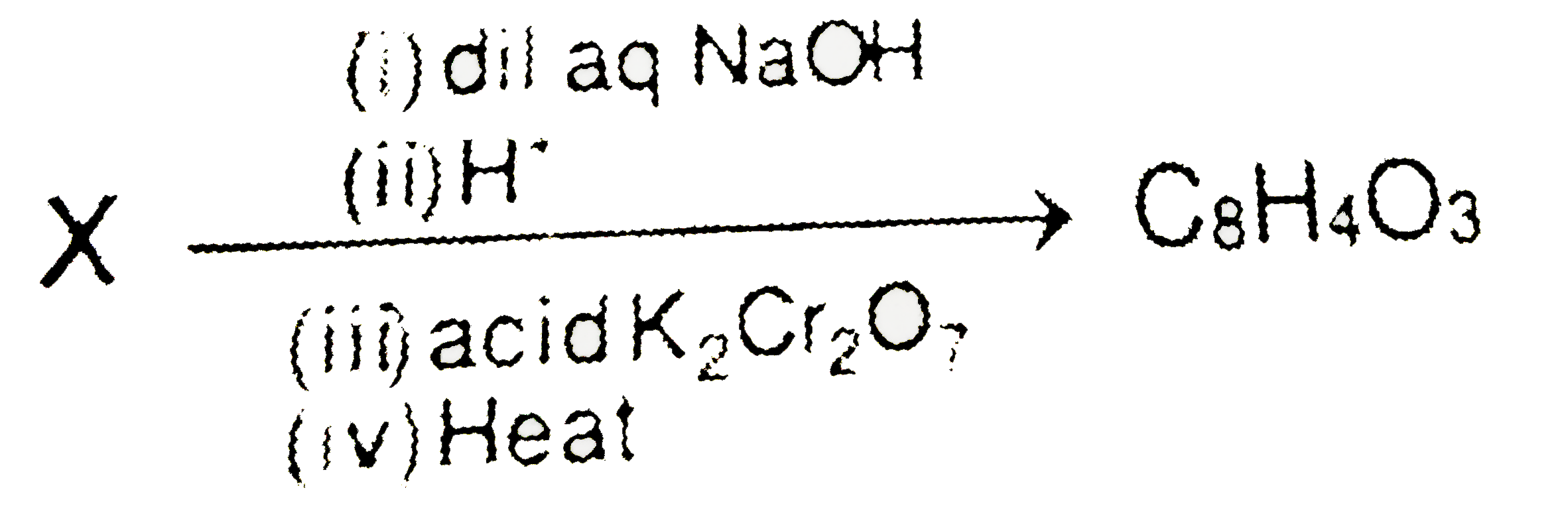
View SolutionIdentify the compound Y in the following reaction :

View SolutionIdentify compound (A) in the following reaction:
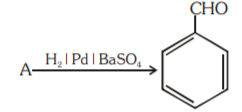
View SolutionIdentify the compound Y in the following reaction.

View SolutionCompound "X" undergoes the following sequences of reactions to form "Y"
 compound "Y"is -
compound "Y"is -
View SolutionIdentify the compound 'Y' in the following reaction.

View SolutionIdentify compound (A) in the following oxidation reaction

View SolutionIdentify compound X in the following sequence reactions:
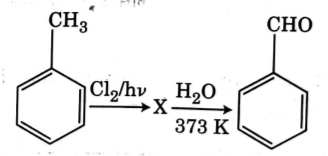
View SolutionThe compound on dehydrogenation gives a ketone. The original compound is :
View Solution

